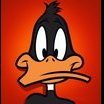How To Be Genderqueer
-
Recently Browsing 0 members
- No registered users viewing this page.
-
Topics
-
-
Popular Contributors
-
-
Latest posts...
-
195
What sort of personality traits do you need to marry a bargirl?
Thanks for the link to the video, I watched it, I thought that is quite typical, the guy was stupid not the woman. Why do these guys think any woman anywhere in the world who is in her very early twenties no matter who they are would fancy and want to be with a guy in his fifties unless it was for money? My Thai partner of twenty+ years owns around nine houses in Thailand which she rents out, they are completely in her name, my property and money is in England in my name, the difference is she bought and paid for her houses herself, I bought and paid for mine, meaning we are both financially independent of each other. Oh and there is not 30+ years age gap as well. -
67
Anyone use a ST109 tracker?
Sorry to hear you're having problems. Have to confess I only did the hardwire installation on my tracker, left the all the SIM stuff to the wife. I don't have a phone so all this "new" technology is gives me a headache so leave it all to her. The wife is out at the moment but will try get some answers for you and post again in tomorrow. We did not buy any additional package, just used the GOMO sim straight out of the box. Though there is the strange case that the tracker is still on the original phone number of the original SIM.! When you first open the SinoTrack app it brings up a map. of what I presume is the SinoTrack home base. To start activating your tracker you have to click on it's ID in the window on the bottom left. Hope this is some help, will post again tomorrow after having spoken with the wife. -
73
USA Measles Resurgence in the U.S. Reaches 33-Year High Amid Vaccine Hesitancy
Brit Man Too is a lot further along the truth road than you Sir. Your post is utter nonsense Sir. You are simply parroting the MSM line. And they are hopelessly wrong, and unscientific. -
3
recommend a clinic for Testosterone testing
I'm also interested in the cost per month for you older 60+ guys and whether you use gels or injection....and sources in Thailand..(Chiang Mai would be helpful). My goal is primarily better results in the gym as i'm not going near hardcore steroids due to all the sides. I'm trying fenugreek pills at the moment to raises testosterone which of course is at the weakest end of the results scale... Just commited to hitting gym long-term now. -
25
Do You Avoid Other Foreigners You Meet in Thailand?
I think they avoid me ! My neighbours are mostly Scandinavian who smoke and drink by the pool. They don’t speak. -
29
Is President Trump Betraying MAGA By Legalizing Illegals?
You're wrong. See first bullet here, 12 million people. https://www.axios.com/2025/07/08/medicaid-cuts-states Sure it's best we give tax breaks to the ultra rich (gee wonder how much of a tax break the King of Grifters gave himself) than helping our hospitals pay for the poorest people in our nation.
-
-
Popular in The Pub













Recommended Posts
Create an account or sign in to comment
You need to be a member in order to leave a comment
Create an account
Sign up for a new account in our community. It's easy!
Register a new accountSign in
Already have an account? Sign in here.
Sign In Now